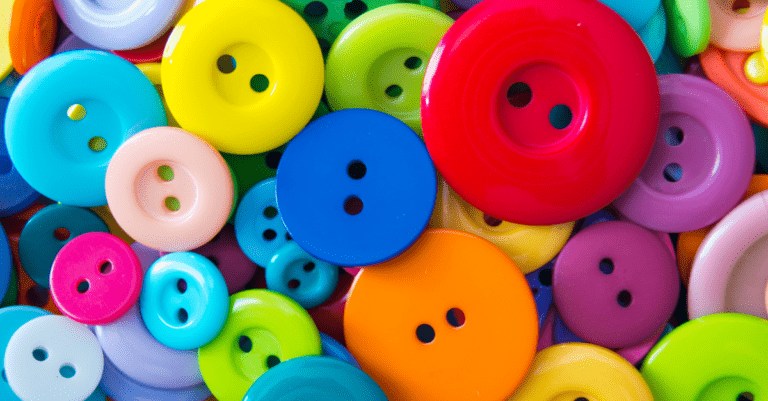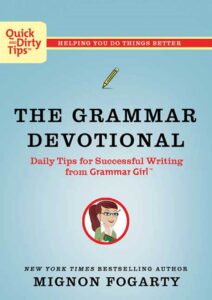I like myriad 10,000 Maniacs songs—”These Are Days,” “Candy Everybody Wants,” “Few and Far Between,” and probably more that I can’t think of right now. But should I really use “myriad” to describe just a few songs like this?
First, the reason I’m telling you about my love for 10,000 Maniacs is that the word “myriad” is derived from the Greek word for “10,000.”
Second, the word has long since come to have a meaning beyond specifically 10,000. Today, it means “a whole bunch,” “an uncountable multitude,” or “something with an innumerable variety” so it’s hard to argue that “myriad” is a good way to describe three or four songs. “Various,” “a few,” or “many” would probably be better choices.
‘A Myriad of’ or Just ‘Myriad?
Another hot debate is whether it is correct to say, “Disneyland has myriad delights” or “Disneyland has a myriad of delights.” You commonly hear “a myriad of” and just as commonly hear people railing that it should be simply “myriad” because the word is an adjective and essentially equivalent to a number. The argument goes like this: You wouldn’t say, “There are a ten thousand of delights,” so you shouldn’t say, “There are a myriad of delights.”
Believe it or not, most language experts say that either way is fine. “Myriad” was actually used as a noun in English long before it was used as an adjective, and Merriam-Webster says the criticism the word gets as a noun is “recent.” Further, Garner’s Modern English Usage says “a myriad of” is fine even though it’s less efficient than “myriad.” Language is about more than efficiency, after all!
Today, “myriad” is used as both a noun and an adjective, which means it can be used with an “a” before it (as a noun, “a myriad” just as you would say “a mouse”) or without an “a” before it (as an adjective, “myriad delights” just as you would say “delicious treats”).
Nevertheless, if you choose to say or write “a myriad of,” I have to warn you that you’ll encounter occasional but vehement resistance. And in fact, the AP Stylebook says not to use it. So if you’re following AP style, it doesn’t matter what Merriam-Webster or Garner says is fine. (The Chicago Manual of Style doesn’t comment on “a myriad of” directly, but in a Q&A refers people to Merriam-Webster.)
‘Myriads’
Also, as a noun, “myriad” even has a plural—“myriads”—which I confess grates on my ears a bit, but Merriam-Webster says it’s acceptable. A Google Ngram search shows that “myriads” used to be more common than it is today, and looking through old sources, the phrase “myriads and myriads” often pops up to mean “an awful lot of something.”
Further, depending on the translation, some Bibles include variations on that phrase. For example, in the verse Daniel 7:10, the King James Bible writes about “ten thousand times ten thousand standing before him,” but other translations describe it as “a myriad of myriads,” “ten thousand of myriads,” and “myriads upon myriads.”
John Milton also used the plural, “myriads,” in “Paradise Lost”:
If thou beest he; but Oh how fallen! how changed
From him, who in the happy realms of light
Clothed with transcendent brightness didst outshine
Myriads though bright…
And it also appears at least twice in the editor’s preface of “The Prose Works of John Milton” written by James Augustus St. John in 1889:
And, to speak honestly, I have not yet learned to think so meanly of my countrymen, as not to believe that this island contains many myriads to whom truth, both in politics and religion, is precious as life itself.
Who under an evil government, can feel any unsophisticated thirst of glory, or be desirous that posterity should know he tasted the bitter cup of servitude under this or that tyrant? Or, worse still, that while myriads of his nobler countrymen were smitten and pining in secret sadness, at beholding the abomination of desolation in the Holy Place of Freedom; or were, perchance, carried forcibly away for imaginary offenses into exile beyond the seas, he could tune his slavish lyre for the amusement of courtiers, or insolently celebrate his private pleasures?
With examples from the Bible and Milton, we can safely say that the people who use “myriads” are no slouches. Still, although the Associated Press doesn’t comment on “myriads,” I suspect they wouldn’t like it.
Summary
What should you do? If you want to be absolutely safe and never be criticized, avoid “myriads” and “a myriad of,” but know that respectable people have been saying “myriads” and “a myriad of” for many years, maybe, we could even say, myriad years! Whatever you do, don’t criticize other people for using them, unless maybe you’re an Associated Press editor enforcing your style.
Mignon Fogarty is Grammar Girl and the founder of Quick and Dirty Tips. Check out her New York Times best-seller, “Grammar Girl’s Quick and Dirty Tips for Better Writing.”
Image courtesy of Shutterstock.
Mignon Fogarty
Get more tips like this in “The Grammar Devotional”
Print: Amazon, Barnes & Noble, Powell’s
E-book: Amazon Kindle, Barnes & Noble Nook, Apple iBook






